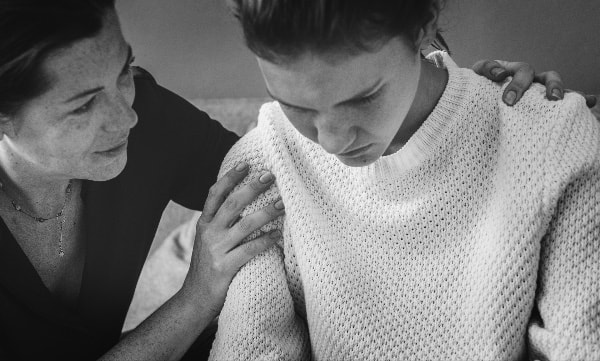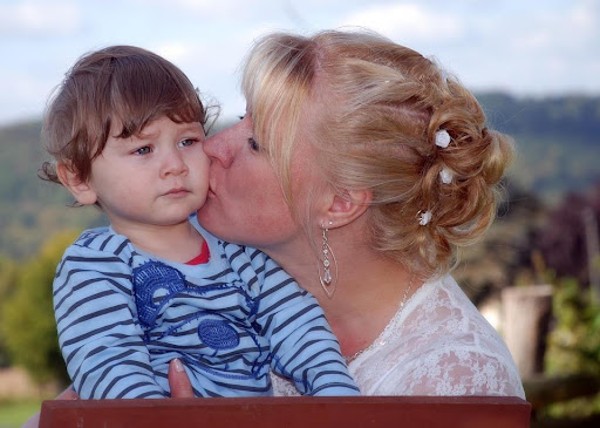Examining the Build Up of Triggers That Lead to Challenging Behaviour: A Personal Perspective
In this article Tony a person with disability in his late sixties will share his personal perspective specifically on antecedents and the need for further detective work to look beyond the immediate antecedent. Instead to look at a range of setting events that could have contributed to the occurrence of behaviours that challenge others.
Read more
Choice is a Voice: Choice Techniques for Minimising Behaviours of Concern
Having little or no choice is demeaning and has a negative impact on an Individual's Quality of Life. In this blog, we are going to explore 'Choice as a Voice' to empower the individual with the means to express their preferences across their daily life.
Read more
Sensory Stories for Individuals Experiencing PMLD (Profound & Multiple Learning Difficulties)
What makes a story Sensory? What purpose does it serve within the Special Education Classroom? How do you assess a Sensory Story’s value? This article concerns both the theory and practice of Sensory Stories for groups of Learners experiencing PMLD within any establishment. While the article addresses the issue of utilising the Sensory Story approach with groups, it does not preclude its use with an individual Learner although some of the techniques may require a little adjustment.
Read more
12 Ways to Help Students Overcome Challenging Behaviour
Students at school experience all kinds of stresses each day. When it all gets too much the student's behaviour can become challenging. Here are 12 practical and easy-to-use strategies for de-escalating challenging behaviour in the classroom.
Read more
Communication Strategies for Individuals with Profound and Multiple Learning Difficulties (PMLD)
This article discusses a range of strategies that can be used by the communication partner to develop and strengthen potentially communicative signals which is critical in furthering the development of communication skills.
Read more
Why is Play so Challenging for Children with Disabilities?
Play is an essential part of growing up. The benefits of play influence all physical and emotional aspects of development from growing stronger to learning how to interact with one another. We anticipate that children will simply know how to play or be able to ‘go play’ with only a little encouragement but play can actually be very difficult for some children and in particular those with disabilities.
Read more
What do we mean by Neurodiversity, Neurodivergent, and Neurotypical?
Read more
Which is it: Hyperactivity or ADHD?
Are you uncertain about whether your child is hyperactive (as young children often are), actually has Hyperactivity or has ADHD (Attention Deficit Hyperactivity Disorder). This article aims to help parents and educators understand the subtle differences and offers advice for supporting children in the home and at school.
Read more
Teaching Neurodiverse Children to Reduce Disruptive Behaviour and Promote Positive Learning
This article aims to provide practical tools and knowledge that you can use to best support and nurture neurodiverse students in your classroom. Every student you meet will have unique needs but when the unique needs of a neurodiverse student are not met it can disrupt learning for all and reduce the chances of success for the student.
Read more
Managing Anger, a guide for Parents and Teachers
This article aims to provide a clear understanding of anger's many facets, from its definition and causes to its symptoms and management techniques. By equipping ourselves with this knowledge, we can better support our children and students in their journey of emotional growth and resilience.
Read more
Understanding Anxiety: Symptoms, Causes, and Management Strategies
This guide aims to provide you with knowledge and tools to better navigate the complexities of anxiety.
Read more
Strategies for Improving Attention Span and Avoiding Distraction
In this article we explore how technology affects attention span, neurodivergence characterised by attention span difficulties and management techniques anyone can use to improve their attention span.
Read more
What is Behaviour of Concern? Ten examples and common causes.
Article explaining what behaviours of concern are, providing examples of behaviours of concern, considering causes and effects.
Read more
Ten Examples of Behaviours of Concern
Explore ten example behaviours of concern: physical, verbal aggression, self-injury, and more. Definition, causes and impacts.
Read more
Twelve Common Causes of Behaviours of Concern
Explore key factors behind challenging behaviors, from communication issues to environmental impacts, for effective understanding and support.
Read more
Impacts of Behaviours of Concern on the individual
Explore the impacts of behaviours of concern on the individual in education, at home, with friends, at work and in wider society.
Read more
Behaviours of Concern, Measuring Frequency, Duration and Intensity
A step by step guide to measuring the frequency, duration and intensity when you are identifying behaviours of concern.
Read more
12 De-Escalation Strategies to Help Your Student Overcome Their Challenging Behaviours
Read moreUnderstanding Harm to Self and Suicidal Ideation as Behaviours of Concern
Read more
What are the early signs and symptoms of Autism Spectrum Disorder?
Autism Spectrum Disorder (or ASD for short) is characterised by a difficulty with social communication and repetitive patterns of behaviour. This article explores these two areas in more detail giving a comprehensive guide to the early signs and symptoms of ASD.
Read more



